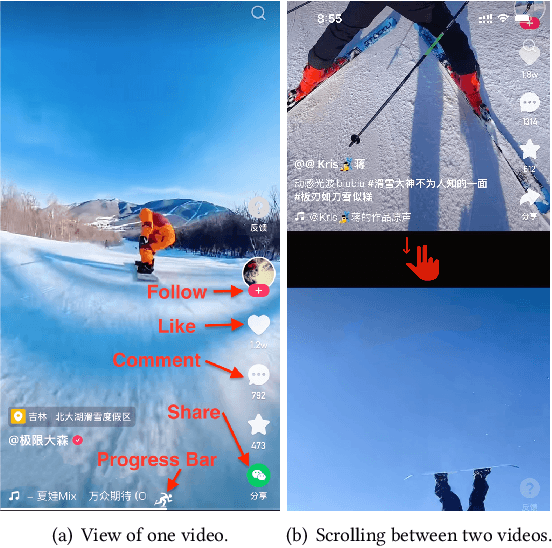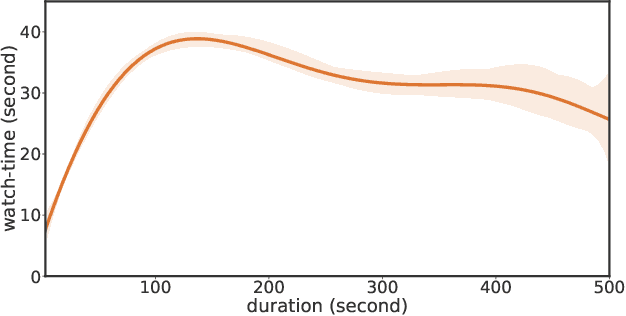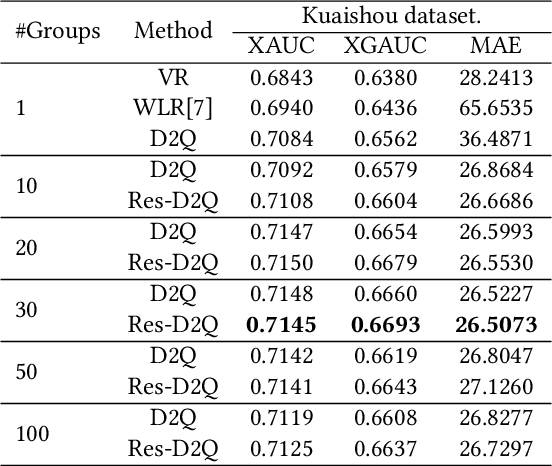Guanyu Mu
Deconfounding Duration Bias in Watch-time Prediction for Video Recommendation
Jun 13, 2022



Abstract:Watch-time prediction remains to be a key factor in reinforcing user engagement via video recommendations. It has become increasingly important given the ever-growing popularity of online videos. However, prediction of watch time not only depends on the match between the user and the video but is often mislead by the duration of the video itself. With the goal of improving watch time, recommendation is always biased towards videos with long duration. Models trained on this imbalanced data face the risk of bias amplification, which misguides platforms to over-recommend videos with long duration but overlook the underlying user interests. This paper presents the first work to study duration bias in watch-time prediction for video recommendation. We employ a causal graph illuminating that duration is a confounding factor that concurrently affects video exposure and watch-time prediction -- the first effect on video causes the bias issue and should be eliminated, while the second effect on watch time originates from video intrinsic characteristics and should be preserved. To remove the undesired bias but leverage the natural effect, we propose a Duration Deconfounded Quantile-based (D2Q) watch-time prediction framework, which allows for scalability to perform on industry production systems. Through extensive offline evaluation and live experiments, we showcase the effectiveness of this duration-deconfounding framework by significantly outperforming the state-of-the-art baselines. We have fully launched our approach on Kuaishou App, which has substantially improved real-time video consumption due to more accurate watch-time predictions.
 Add to Chrome
Add to Chrome Add to Firefox
Add to Firefox Add to Edge
Add to Edge